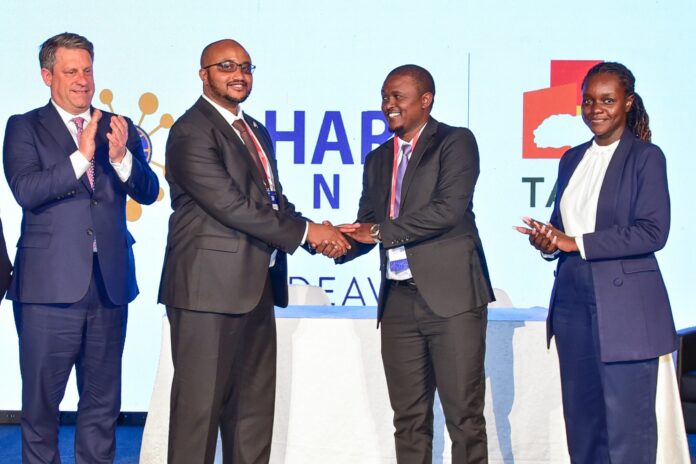New town Tatu City builder Rendeavour pledges to connect its neighbours, as Kenya announces fibre rollout acceleration
Rendeavour, the builder, owner and developer of Tatu City – a 5,000-acre new city on Nairobi’s doorstep – has created a new service provider, Fahari Link, to deliver high-speed internet connectivity to thousands of currently underserved residents in nearby towns and informal settlements.
Fahari Link has invested heavily in acquiring wholesale bandwidth from global internet service providers to extend its reach to areas beyond Tatu City, including the informal communities of BTL, OJ and Rutoro. Rapidly growing Ruiru, the sixth fastest growing town in Africa, will be served, as well as the communities of Oaklands, Murera, Kamakis and other parts of Kiambu County. In total, Fahari’s services will be available to close to one million people.
Fahari Link will provide low connection fees, daily internet plans, reliable internet connectivity and technical support to citizens of Kiambu County, including those earning subsistence wages. In addition to connecting homes, Fahari Link will deploy wi-fi internet connections in public spaces such as shopping centres and sports fields, ensuring that digital access is available to all, including mobile users.
“With Fahari Link, we are not just connecting people; we are connecting aspirations, opportunities, and futures,” said Rendeavour deputy country head Alex Kahu. “By expanding affordable internet and broadband services to our neighbouring community, Tatu City is ensuring that no one is left behind in Africa’s digital future.”
According to Rendeavour, more than 3,000 homes and apartments are occupied or under construction in the city and 4,500 students study at Tatu City’s schools. The city is also home to around 75 local businesses. German-based cleaning equipment manufacturer Karcher has announced an approximate €3 million investment in building a regional distribution centre at Freight Forwarders Solutions (FFS) in Tatu City, located in a Special Economic Zone (SEZ) on Nairobi’s doorstep.
The city already has its own telecom provider, Tatu Telecom, which has laid more than 40km of fibre optic cables and currently serves over 1,000 residential and commercial customers, including schools and local, regional, and multinational companies within Tatu City. Tatu Telecom has also built an open-access network, allowing multiple internet service providers to serve Tatu City residents and businesses.
Rendeavour currently has 30,000 acres of urban-build projects in across Ghana, Nigeria, Kenya, Zambia and the Democratic Republic of Congo.
Kenya accelerates its fibre rollout
The arrival of Fahari coincides with cabinet secretary for information, communications, and the digital economy Eliud Owalo announcing the nation has changed its rollout model and now believes it can deploy 100,000 kilometres of optical fibre to underserved areas in two years rather than the original five planned.
To achieve this the country was switching away from burying cables to using existing infrastructure from the Kenya Power and Lighting Company (KPLC). Needless to say, this isn’t a new approach in Kenya. For example, in 2017 Liquid Telecom Kenya announced a 10-year partnership with Kenya Electricity Transmission Company Limited (KETRACO) to operate KETRACO’s Optical Ground Wire (OPGW) fibre cables and expand the internet network across East Africa.
But Owalo, speaking at the Digital Transformation in East Africa conference, signalled the government was backing the plan to accelerate its rollout. “If we go that route, which is now work in progress, it is our estimation that as opposed to the five years within which we are envisaged to roll out 100 000km, we will now be able to roll out the 100,000km of fibre within the next two years,” he said.
He added that since the resumption of the fibre rollout last year, Nia Fibre, which was contracted by the government, had laid 10,000 kilometres. As the fibre build continues, the government said it would also roll out 25,000 wi-fi hotspots across the country.
Safaricom’s fibre training commitment
Elsewhere, Safaricom, in partnership with Kenya’s ICT Authority has launched the Connect Academy, a training programme designed to address the shortage of skilled fibre optic technicians in Kenya. As part of the Presidential DigiTalent Programme, a Public-Private Partnership (PPP), the academy will focus on skill development, mentorship, training, certification, and fostering innovation in the ICT sector.
The initial cohort of 200 participants will begin training in May. They will receive full-day sessions every Friday for three months led by Safaricom engineers. “Our target is to grow a world-class broadband connectivity talent pool for public and private sectors in partnership with Technical and Vocational Education and Training (TVET) institutions. This will create employment and a career path for Kenyan youth who lack higher education,” said Safaricom chief consumer business officer Fawzia Ali-Kimanthi.\
Pictured (left to right) Frank Mosier, chairman, Rendeavour; Alex Kahu, country head, Kenya, Rendeavour; John Njogu, Gitothua Ward MCA; and Linda Nyaseda, head of city management, Tatu City.



